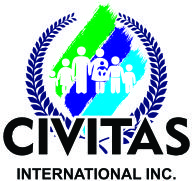To address Haiti Fragile environmental situation, Civitas International would need to have a comprehensive approach.
We will need to build an effective emergency response unit tailored to Haiti’s specific needs:
- Facing Natural Challenges:
- Establish a disaster preparedness and response training program focusing on earthquake and hurricane resilience.
- Collaborate with local NGOs and government agencies to develop early warning systems and evacuation plans.
- Stockpile emergency supplies like food, water, medical supplies, and shelter materials in strategic locations.
- Navigating Political and Economic Turmoil:
- Partner with local community leaders and grassroots organizations to understand political dynamics and ensure access during emergencies.
- Advocate for policies that prioritize disaster response and recovery, especially in economically vulnerable areas.
- Develop contingency plans for situations where political instability may hinder response efforts.
- The Strength of the Haitian Diaspora:
- Engage the Haitian diaspora in emergency response training and mobilization efforts, leveraging their networks and expertise.
- Establish communication channels to coordinate resources and support from the diaspora during crises.
- Create diaspora-led initiatives for fundraising and resource mobilization specifically for emergency response activities.
- Education and Skill Development:
- Include disaster preparedness and first aid training in educational curricula for schools and vocational programs.
- Conduct community workshops on disaster risk reduction and response strategies.
- Train local teachers and community leaders as emergency responders and educators.
- Healthcare Services:
- Develop mobile medical units capable of rapid deployment to affected areas.
- Collaborate with local healthcare providers to ensure continuity of medical services during emergencies.
- Establish partnerships with international medical organizations for surge capacity and specialized care.
- Psychosocial Support:
- Recruit and train mental health professionals to provide psychosocial support in disaster-affected communities.
- Develop community-based support groups and counseling services.
- Implement trauma-informed care practices in emergency response protocols.
- Food Security and Nutrition:
- Establish emergency food distribution centers in high-risk areas.
- Partner with local farmers and food suppliers for sustainable food sourcing.
- Conduct nutritional assessments and provide targeted support for vulnerable populations.
- Safe Shelter and Community Engagement:
- Pre-position emergency shelter kits and establish safe shelter facilities in collaboration with local authorities.
- Conduct community consultations to incorporate local knowledge and preferences in shelter design.
- Facilitate community-led initiatives for emergency response and recovery planning.
- Water, Sanitation, and Hygiene (WASH):
- Implement WASH programs focused on providing clean water, sanitation facilities, and hygiene promotion in disaster-prone areas.
- Train community members in water purification techniques and safe hygiene practices.
- Conduct regular assessments of WASH infrastructure and ensure maintenance during emergencies.
- Livelihood Support and Advocacy:
- Develop emergency livelihood recovery programs, including cash transfers, vocational training, and small business support.
- Advocate for policies that protect livelihoods during and after disasters, such as insurance schemes and economic recovery plans.
- Engage local entrepreneurs and cooperatives in resilience-building initiatives for sustainable economic development.
By implementing these strategies, Civitas International can establish a robust emergency response unit that addresses the unique challenges faced by Haiti, ultimately contributing to enhanced resilience and sustainable development in the country.
